United Nations Environment Programme. "Global Status Report for Buildings and Construction: Towards a Zero‑Emission, Efficient and Resilient Buildings and Construction Sector". (1634601600)October 19, 2021. https://globalabc.org/...
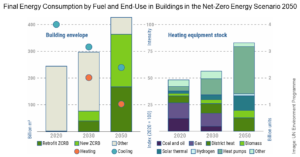 To limit additional global warming to below 2 degrees Celsius, countries have adopted policies and codes that have a future impact on the emissions and energy efficiency of buildings. Building emissions need to be reduced along their life cycle through a combination of reducing energy demand, decarbonizing the power supply and addressing embodied carbon stored in building materials. Efforts require maximizing the refurbishment of existing buildings, evaluating each design choice using a whole life-cycle approach, minimizing upfront carbon impacts, and avoiding future embodied carbon during and at the end of their life. This also helps in achieving the UN SDGs.
To limit additional global warming to below 2 degrees Celsius, countries have adopted policies and codes that have a future impact on the emissions and energy efficiency of buildings. Building emissions need to be reduced along their life cycle through a combination of reducing energy demand, decarbonizing the power supply and addressing embodied carbon stored in building materials. Efforts require maximizing the refurbishment of existing buildings, evaluating each design choice using a whole life-cycle approach, minimizing upfront carbon impacts, and avoiding future embodied carbon during and at the end of their life. This also helps in achieving the UN SDGs.
Posted on 13/11/21
Recent Abstracts
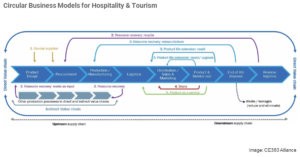
Circular Economy in Travel and Tourism: A Conceptual Framework for a Sustainable, Resilient and Future Proof Industry Transition
This paper suggests that the circular economy (CE) offers a pathway towards a resilient and sustainable, tourism ecosystem. It also suggests that hospitality, travel and tourism has an important role to play in the circular economy transition. The stakeholders can act as enablers of circularity and benefit from share ...
Posted on 25/11/21

How do death rates from COVID-19 differ between people who are vaccinated and those who are not?
When headline say “Half of those who died from the virus were vaccinated”, we don't know whether or not the vaccine is protecting people. For this, we need to know how many people were vaccinated and how many were not. Comparisons of the absolute numbers is a "base rate fallacy". If 5 of 10 unvaccinated people died, ...
Posted on 24/11/21

Life Cycle-Based Sustainability and Circularity Indicators for the Tourism Industry: A Literature Review
Carbon footprint/climate change appears to be the most commonly used life-cycle sustainability indicator for tourism and hospitality. Specific sustainability indicators that consider socio-economic and socio-cultural aspects have rarely been specified in the industry's transition towards circular economy. Future life ...
Posted on 23/11/21
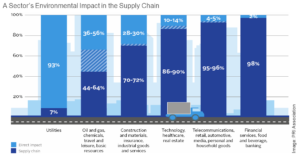
Managing ESG Risk in the Supply Chains of Private Companies and Assets
Supply chains are often highly complex and span many countries and include multiple tiers that are made more opaque by outsourcing and offshoring. Highly interdependent, the relationship between products and services and ESG risk factors are intertwined across sectors and throughout every level of the supply chain. A ...
Posted on 23/11/21

Determining the Sustainability of Hotels in Your Supply Chain
The hospitality industry needs to become more sustainable and hotels globally are focusing on the sustainability impacts of their supply chains. This guidance addresses the environmental and social sustainability issues in hospitality supply chains and recommends steps for determining what sustainability information t ...
Posted on 22/11/21
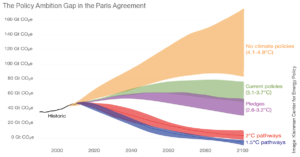
The Policy Challenge for the Inevitable Response to the Climate Transition
Inevitable Policy Response (IPR) anticipates a climate policy acceleration driven in part by investor, corporate and civil society pressure around net zero, climate impacts, and low-carbon technology cost developments. The principles address the different emissions paths between the developed and developing nations in ...
Posted on 22/11/21
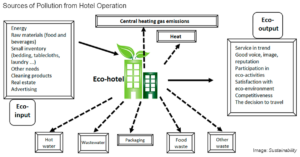
The Role of Performance and Environmental Sustainability Indicators in Hotel Competitiveness
Environmental protection and sustainability are important factors in the hotel business and their competitiveness. Performance and environmental sustainability indicators help hotel managers identify opportunities for employing processes for saving resources to improve the environmental performance of their hotels. T ...
Posted on 20/11/21

Tourism Mobility and Climate Change – A Review of the Situation in Austria
Travel by car and plane are primary sources of greenhouse gas emissions in tourism. 3 out of 4 guests in Austria use the car and around 10% travel by plane. It is expected that the number of guests arriving by plane will increase after the coronavirus pandemic. Technological improvements and societal trends will not ...
Posted on 19/11/21
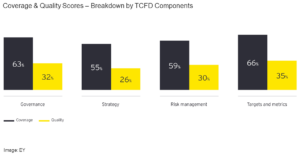
Mandatory Corporate Climate Disclosures: Now, but How?
Companies are not required to disclose the information that investors need to price climate risk. Voluntary frameworks, like the Task Force on Climate-Related Financial Disclosures (TCFD), do not bring about the necessary change. This has led to mispricing climate risk and capital misallocation, which harms investors ...
Posted on 19/11/21

Sustainable Hotel – Siting, Design and Construction
This resource supports local government planning authorities, owners, developers, architects and investors in the sustainable development of new or refurbishment of existing hotels. It can be used during all phases of the development process to ensure that hotels are built with minimal impact on the local environment ...
Posted on 18/11/21
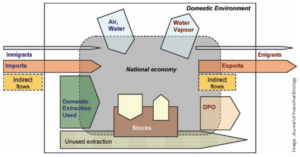
The Use of Natural Resources in the Economy: A Global Manual on Economy Wide Material Flow Accounting
Material flow accounting provides a statistical framework measuring natural resource extraction, trade in natural resources, waste disposal and emissions. Domestic material consumption and material footprint are used as a proxy for overall environmental pressure within a national economy and the impact of a national e ...
Posted on 18/11/21
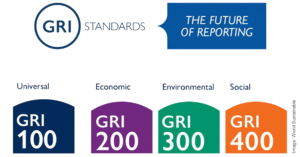
Universal Standards
The GRI Standards are global public reporting best practices on economic, environmental and social impacts. Reporting based on the standards provides information about an organization’s positive or negative contributions towards sustainable development for integration into its strategy, to identify financial risks and ...
Posted on 17/11/21

ESG Investing Has a Blind Spot That Puts the $35 Trillion Industry’s Sustainability Promises in Doubt: Supply Chains
There's some discrepancy in how such rating agencies as Bloomberg, MSCI and Sustainalytics are measuring the ESG risk in the performance of supply chains. To accurately measure a company’s ESG risks, also its end-to-end supply chain operations must be considered. The EU's new Sustainable Finance Disclosure Regulation ...
Posted on 16/11/21

Hotel Sustainability Benchmarking Index 2020: Carbon, Energy, and Water
The Cornell Hotel Sustainability Benchmarking Index (CHSB) is the hotel industry’s largest annual benchmarking of energy, water, and carbon emissions. It is an industry-led global data collection and benchmarking initiative, with more than 18,000 hotels contributing information on their energy and water usage and gree ...
Posted on 16/11/21
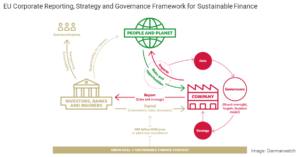
SDG-Related Initiatives
PRI lists 25 SDG reporting initiatives according to focus. Some are a mechanism for disclosure and reporting on SDG investments or impact financing. Others allow for measuring and reporting on the implementation of the SDGs by businesses and their alignment with corporate sustainability benchmarks. United Nations Gl ...
Posted on 15/11/21

